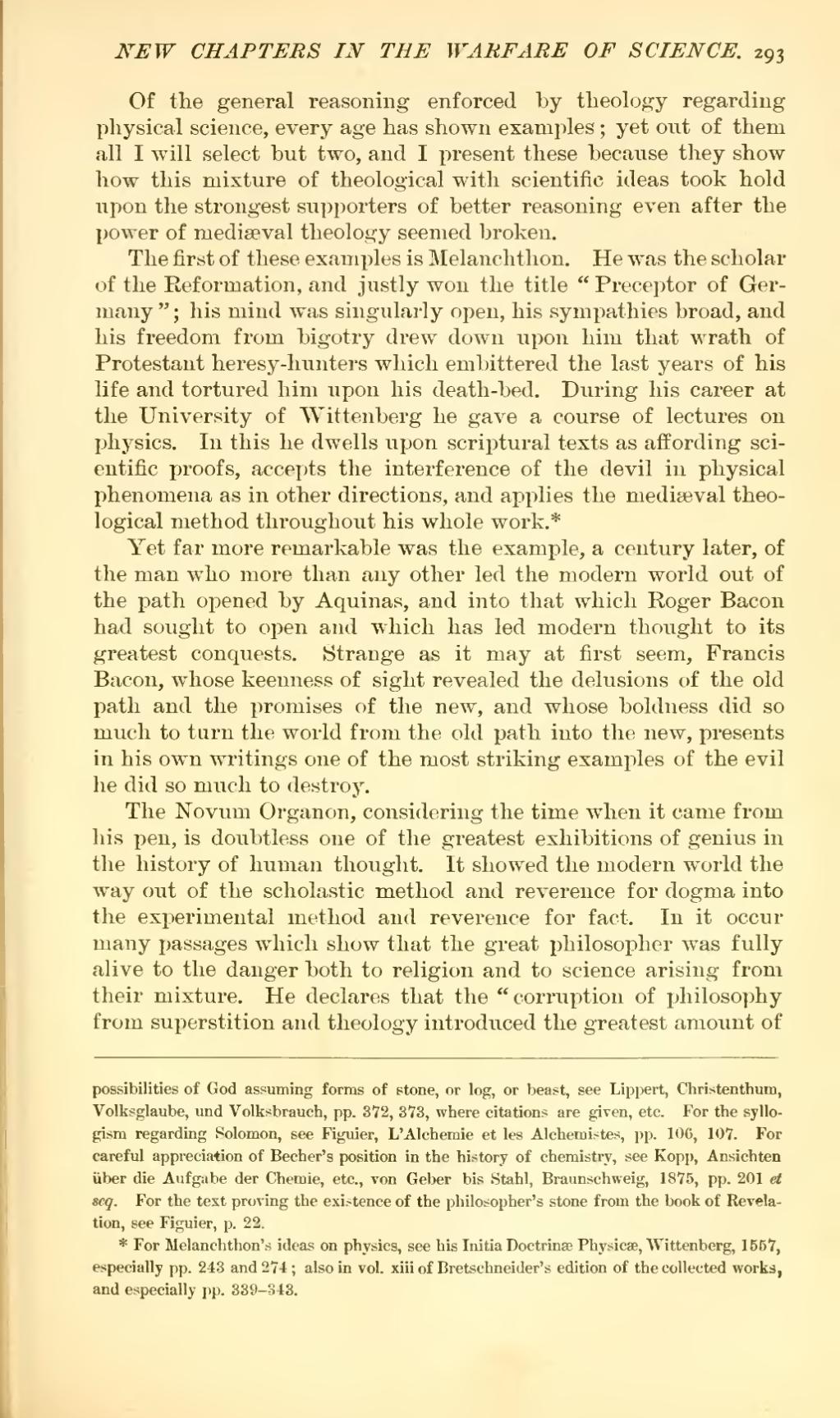Of the general reasoning enforced by theology regarding physical science, every age has shown examples; yet out of them all I will select but two, and I present these because they show how this mixture of theological with scientific ideas took hold upon the strongest supporters of better reasoning even after the power of mediæval theology seemed broken.
The first of these examples is Melanchthon. He was the scholar of the Reformation, and justly won the title "Preceptor of Germany"; his mind was singularly open, his sympathies broad, and his freedom from bigotry drew down upon him that wrath of Protestant heresy-hunters which embittered the last years of his life and tortured him upon his death-bed. During his career at the University of Wittenberg he gave a course of lectures on physics. In this he dwells upon scriptural texts as affording scientific proofs, accepts the interference of the devil in physical phenomena as in other directions, and applies the mediaeval theological method throughout his whole work.[1]
Yet far more remarkable was the example, a century later, of the man who more than any other led the modern world out of the path opened by Aquinas, and into that which Roger Bacon had sought to open and which has led modern thought to its greatest conquests. Strange as it may at first seem, Francis Bacon, whose keenness of sight revealed the delusions of the old path and the promises of the new, and whose boldness did so much to turn the world from the old path into the new, presents in his own writings one of the most striking examples of the evil he did so much to destroy.
The Novum Organon, considering the time when it came from his pen, is doubtless one of the greatest exhibitions of genius in the history of human thought. It showed the modern world the way out of the scholastic method and reverence for dogma into the experimental method and reverence for fact. In it occur many passages which show that the great philosopher was fully alive to the danger both to religion and to science arising from their mixture. He declares that the "corruption of philosophy from superstition and theology introduced the greatest amount of
- ↑ For Melanchthon's ideas on physics, see his Initia Doctrinæ Physicæ, Wittenberg, 1557, especially pp. 243 and 274; also in vol. xiii of Bretschneider's edition of the collected works, and especially pp. 339-343.
possibilities of God assuming forms of stone, or log, or beast, see Lippert, Christenthum, Volksglaube, und Volksbrauch, pp. 372, 373, where citations are given, etc. For the syllogism regarding Solomon, see Figuier, L'Alchemie et les Alchemistes, pp. 106, 107. For careful appreciation of Becher's position in the history of chemistry, see Kopp, Ansichten über die Aufgabe der Chemie, etc., von Geber bis Stahl, Braunschweig, 1875, pp. 201 et seq. For the text proving the existence of the philosopher's stone from the book of Revelation, see Figuier, p. 22.
